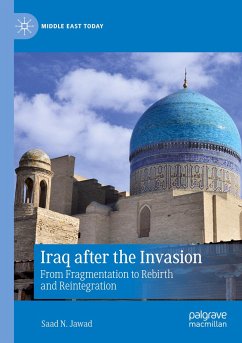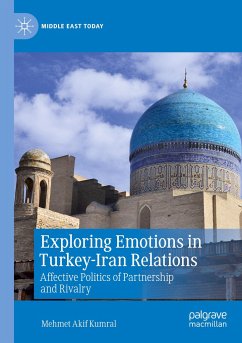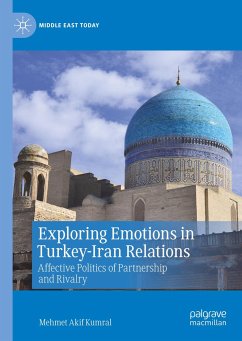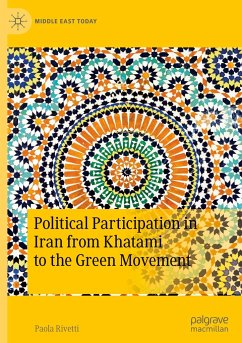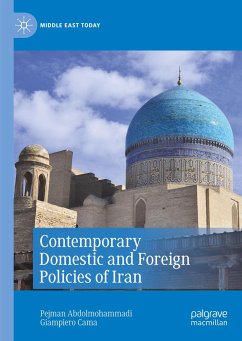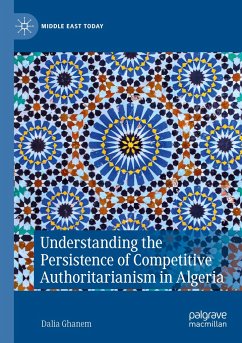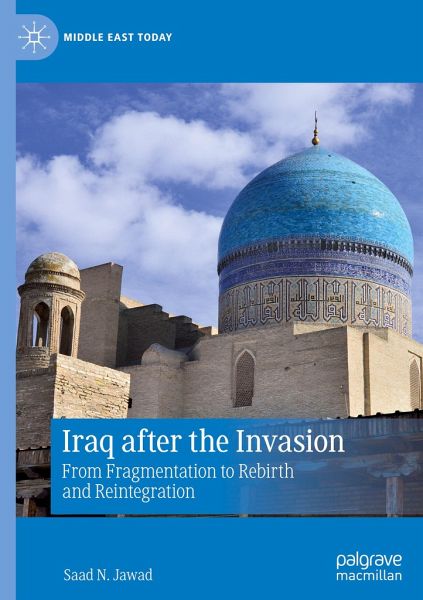
Iraq after the Invasion
From Fragmentation to Rebirth and Reintegration
Versandkostenfrei!
Versandfertig in 6-10 Tagen
98,99 €
inkl. MwSt.
Weitere Ausgaben:

PAYBACK Punkte
49 °P sammeln!
This book states that one calamitous result of the invasion and occupation of Iraq (2003) was the dismantling of the state and the destruction of all the structures and processes of government. The invading powers, the USA and UK, were obsessed with the removal of the regime of Saddam Hussein, which they regarded a clear danger and a serious threat to their strategies designs and in the region. To justify their atrocity, they trumped up a number of falsehoods and charges, such as the issue of WMD.Before that and over a period of 13 years, they had imposed unprecedented, fierce and relentless s...
This book states that one calamitous result of the invasion and occupation of Iraq (2003) was the dismantling of the state and the destruction of all the structures and processes of government. The invading powers, the USA and UK, were obsessed with the removal of the regime of Saddam Hussein, which they regarded a clear danger and a serious threat to their strategies designs and in the region. To justify their atrocity, they trumped up a number of falsehoods and charges, such as the issue of WMD.
Before that and over a period of 13 years, they had imposed unprecedented, fierce and relentless sanctions on the country. These sanctions not only impoverished and aggrieved the people of Iraq, but also instilled and deeply etched a sense of pessimistic impassivity among many Iraqis in that they felt no longer cared whatever the future might hold for them. The regime's totalitarian nature also helped in creating this attitude. To add insult to injury, the provisional US-installed administration passed many resolutions which have had catastrophic consequences, such as the total dissolution of the security and armed forces and the de-baathification law. The hurriedly contrived new constitution confounded the situation even further and negatively impacted the integrity of the state. Exploiting the inconclusiveness and ambiguities contained in it, the Iraqi Kurdish Region became a de facto independent entity. In time, the central government became weaker than the regions. The hardest hit in this chaotic state of affairs was national unity. The sectarian and ethnic quota-based policies followed by the occupying forces and the expatriate Iraqis who came along with them dealt successive blows to the laws and institutions of the land which further disintegrated the Iraqi state. Iraq now is in dire need of national reconciliation programme aimed at re-uniting the people and the country.
Before that and over a period of 13 years, they had imposed unprecedented, fierce and relentless sanctions on the country. These sanctions not only impoverished and aggrieved the people of Iraq, but also instilled and deeply etched a sense of pessimistic impassivity among many Iraqis in that they felt no longer cared whatever the future might hold for them. The regime's totalitarian nature also helped in creating this attitude. To add insult to injury, the provisional US-installed administration passed many resolutions which have had catastrophic consequences, such as the total dissolution of the security and armed forces and the de-baathification law. The hurriedly contrived new constitution confounded the situation even further and negatively impacted the integrity of the state. Exploiting the inconclusiveness and ambiguities contained in it, the Iraqi Kurdish Region became a de facto independent entity. In time, the central government became weaker than the regions. The hardest hit in this chaotic state of affairs was national unity. The sectarian and ethnic quota-based policies followed by the occupying forces and the expatriate Iraqis who came along with them dealt successive blows to the laws and institutions of the land which further disintegrated the Iraqi state. Iraq now is in dire need of national reconciliation programme aimed at re-uniting the people and the country.



